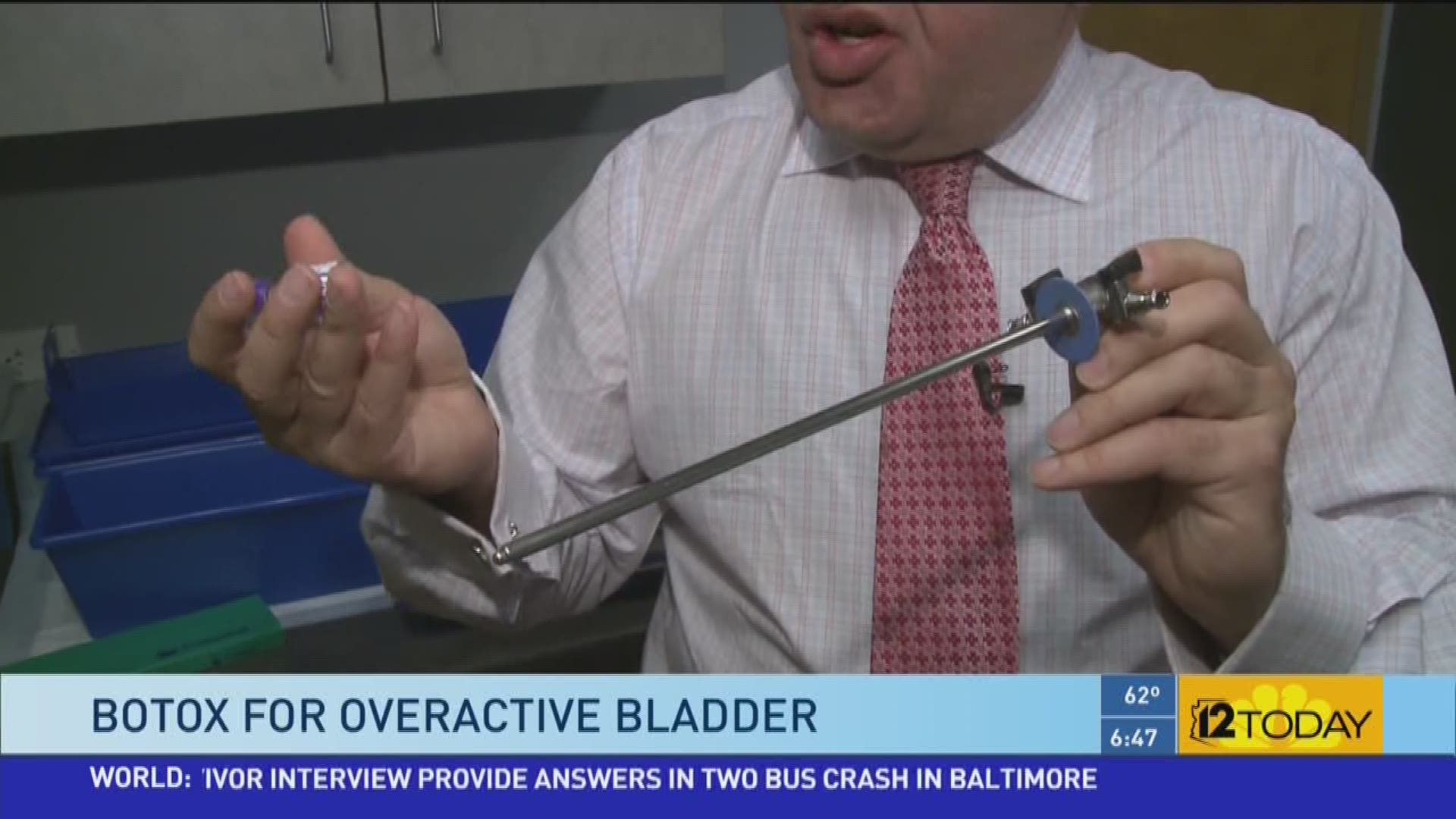SCOTTSDALE, Ariz. - Overactive bladder is an embarrassing problem that affects about 33 million Americans, according to Dr. Farshid Sadeghi with Arizona Urology Specialists.
“Overactive bladder is an embarrassing condition so they really want it resolved,” said Sadeghi, saying traditional therapy and medications don't work for many patients.
“In a way, Botox is partially paralyzing the muscles in the bladder," Sadeghi said. "The idea is that patients who have overactive bladder, their muscle is overactive. It’s squeezing, it’s basically contracting more than you want it to. Botox is slowing that muscle down, it contracts less often.”
Stephanie Heitmeyer was one of those who suffered from overactive bladder for the past 20 years.
“It was extremely debilitating," she said. "I was crossing back and forth flights for business, and just uncomfortable, and not being able to sleep at night, getting up multiple times, going to the bathroom, always kind of afraid you’re not going to make it to the bathroom at times. Or sometimes you’re in the bathroom for a long time. That starts playing with your mind.”
Heitmeyer finally found Dr. Sadeghi six years ago.
After putting the patient under anesthesia, Dr. Sadeghi explained, “You go inside the bladder through the urethra with a very small scope. Now you’re looking at the bladder wall and with a small needle you inject the Botox into the wall of the bladder and you have to inject it typically into 20 separate locations in the bladder. And then you take the scope out, you make sure the patient is not having any issues or complications, make sure they can empty their bladder. So we check that immediately after the procedure and we typically check it two weeks later and then they go home and that’s it.”
Heitmeyer noticed the difference immediately after she had the Botox.
“The first thing you notice is you don’t have to go to the bathroom every three minutes or after you go to the bathroom, you don’t have to go to the bathroom again," she said. "I have my freedom back. I have my life back.”
Sadeghi says the effects of the Botox treatment vary from patient to patient, but generally it lasts from three months up to a year.

